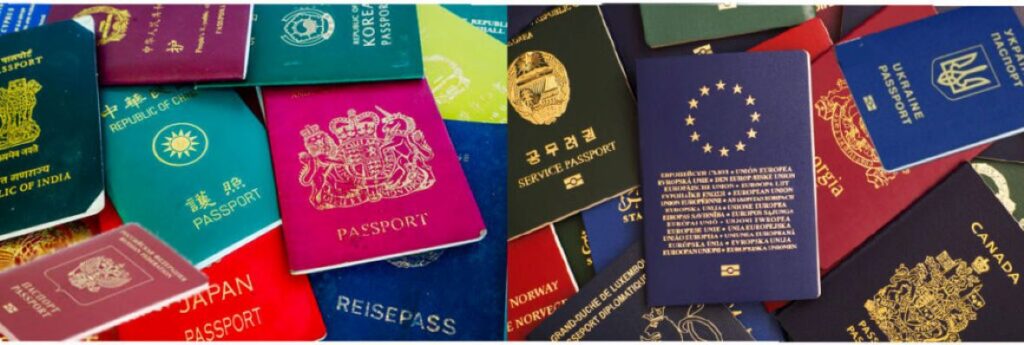Passport holders with the greatest global access are currently the most restricted and reluctant to enjoy their travel freedom, according to the latest results from the Henley Passport Index, which is based on exclusive data from the International Air Transport Association (IATA).
Japan holds the number one spot on the index – the original ranking of all the world’s passports according to the number of destinations their can access without a prior visa — with a record-high visa-free or visa-on-arrival score of 193, while Singapore and South Korea come in joint 2nd place, with a score of 192.
Canada placed 8th, the same as last year, with Canadians able to visit 185 countries visa-free. In the index’s 17-year history, Canada reached 2nd in 2014 and has never dropped lower than 9th.
Despite the record-breaking worldwide access afforded to citizens of the top three nations, international passenger demand in the Asia-Pacific region has only reached 17% of pre-Covid levels, according to IATA’s latest statistics, having hovered below 10% for most of the past two years.
This figure is far behind the global trend where markets in Europe and North America have recovered to around 60% of pre-crisis travel mobility levels.
Commenting in the Henley Global Mobility Report 2022 Q3, Dr Marie Owens Thomsen, Chief Economist at IATA, says passenger numbers should reach 83% of pre-pandemic levels in 2022: “By next year, many markets should see traffic reach or exceed pre-pandemic levels, while we expect this to be the case for the industry as a whole in 2024.”
EU member states dominate the remaining top 10 spots on the latest ranking, with Germany and Spain in joint 3rd place, with access to 190 destinations visa-free. Finland, Italy, and Luxembourg follow closely behind in joint 4th place with 189 destinations, and Denmark, Netherlands, and Sweden share 5th place with their passport holders able to travel to 188 destinations worldwide without a visa.
Both the UK and US have dropped down a rank, to 6th and 7th place, respectively, and Afghanistan remains at the bottom of the index, with its nationals only able to access 27 destinations worldwide visa-free. The global mobility gap between the world’s most and least powerful passports now sits at an unprecedented 166 destinations.
Russia, Ukraine
Not surprisingly, Russian passport holders are more cut off from the rest of the world than ever before, as sanctions, travel bans, and airspace closures limit Russian citizens from accessing all but a few destinations in Asia and the Middle East. The Russian passport currently sits at 50th place on the index, with a visa-free or visa-free on arrival score of 119.
However, due to airspace closures in EU member nations, Australia, Canada, Japan, New Zealand, South Korea, the US, and the UK, Russian citizens are effectively barred from traveling throughout most of the developed world, with the marked exceptions of Istanbul and Dubai, which have become focal points.
By contrast, the Ukrainian passport is currently ranked in 35th place on the index, with holders able to access 144 destinations around the world without needing a visa in advance. In contrast to the stringent restrictions placed on Russian passport holders, Ukrainians displaced by the invasion have been granted the right to live and work in the EU for up to three years under an emergency plan in response to what has become Europe’s biggest refugee crisis this century.
After the EU’s recent, ground-breaking announcement awarding Ukraine candidate status, the first step towards EU membership, the travel freedom for Ukrainian passport holders is likely to increase further in the coming years.
UAE the clear pandemic winner
Throughout the turmoil of the past two years, one thing has remained constant: the growing strength of the UAE passport, which now sits at 15th place on the ranking, with a visa-free or visa-on-arrival score of 176. Over the past decade, the country has made unparalleled gains as the biggest climber on the index — in 2012, it sat at 64th place on the rankings, with a score of just 106.
Peaceful countries have more powerful passports
Unique research conducted by Henley & Partners comparing a country’s visa-free access with its Global Peace Index score shows a strong correlation between a nation’s passport power and its peacefulness. All of the nations sitting in the top 10 of the Henley Passport Index can also be found in the top ten of the Global Peace Index. Likewise, for the bottom ranking nations.
Commenting on the results in the Henley Global Mobility Report 2022 Q3, Stephen Klimczuk-Massion, Quondam Fellow of Oxford University’s Saïd Business School, says: “Your passport is more than ever a calling card, which, depending on which passport you carry and where you are going, will have an impact on the kind of welcome you will receive, where you can go and how safe you will be when you get there.”
He adds, “Now more than ever, it’s a mistake to think of a passport as merely a travel document that allows you to get from A to B. The relative strength or weakness of a particular national passport directly affects the quality of life for the passport holder and may even be a matter of life and death in some circumstances.”

